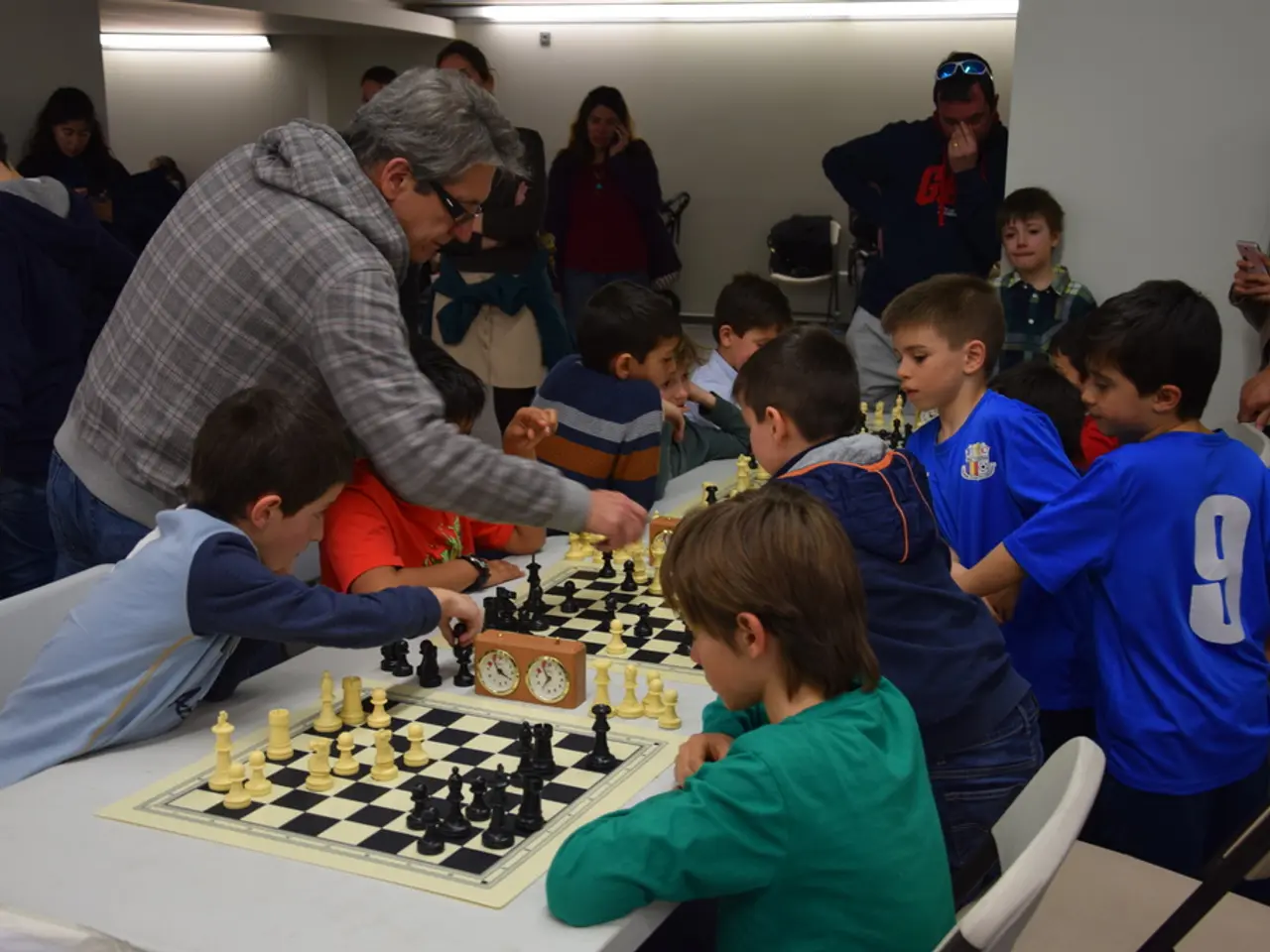Denmark research suggests prevalent minor involvement in gaming activities akin to gambling
In recent years, there has been a growing concern about the impact of loot boxes in online games on young people and their potential to lead to gambling addiction. A report by the gaming portal iGB indicates that gambling among young people in Denmark has increased, with the national regulatory authority, Spillemyndigheden, taking the issue very seriously.
According to a study by Spillemyndigheden, approximately 15% of young people aged between 15 and 17 have come into contact with gambling, and 35% of minors surveyed said they regularly play computer games on the internet where new characters and weapons can be unlocked by paying. This form of gambling, where prices are not self-selected and rewards are random, poses a significant risk, Spillemyndigheden believes.
The study indicates that 42% of young people with casino experience in Denmark play regularly in online casinos. Online RPGs often offer the opportunity to buy advantages in the game through loot boxes, which can be new characters, weapons, or extensions of items. The prices in these games, where new characters and weapons can be unlocked by paying, are a popular form of gambling among young people, whose dangers are often underestimated.
The regulation of loot boxes in online RPGs is an important step to contain the risk of impending gambling addiction among minors. Loot boxes mimic gambling mechanics such as random rewards and chance-based purchases, potentially leading to addiction and financial harm. Studies show that a significant portion of minors start purchasing loot boxes before age 18, with loot boxes acting as a gateway to further gambling activities.
Minors are exposed to gambling-like content due to weak age verification and targeted advertising, which can result in problem gambling behaviours, debt, and unauthorized spending. Age verification is supposed to exclude minors from gambling, but ways are often found to circumvent this regulation in online gambling.
Regulatory measures proposed include classifying loot boxes as gambling under existing laws, as urged by the UK House of Lords Gambling Committee, which recommends specifying loot boxes as games of chance. Other proposals emphasize non-legislative measures by video game companies such as implementing stronger parental controls, increasing transparency of loot box odds, and warning players who spend large amounts.
Key concerns driving regulation are the gambling-like randomization of rewards, lack of transparency about odds, psychological tactics used by developers to encourage spending, and the ease with which minors can access these systems, all of which raise ethical and consumer protection issues.
The results of the study by Spillemyndigheden are taken very seriously, and Spillemyndigheden seems to see the need to revise the system for gambling addiction prevention to protect young people from the dangers of gambling. In response, regulatory bodies like the UK Department for Digital, Culture, Media and Sport (DCMS) have investigated loot boxes and have warned the industry to take action or face legal changes. Some jurisdictions call for stricter age verification to prevent minors’ access to loot-box mechanics and online casinos.
It is essential to address these concerns to protect young people from the potential harms of gambling and ensure a safe and enjoyable gaming experience for all.
References: 1. iGB (2021). Gambling among young people in Denmark increases. Retrieved from https://www.igbnews.com/news/2021/02/16/gambling-among-young-people-in-denmark-increases 2. Spillemyndigheden (2021). Study reveals increasing number of young people gambling in Denmark. Retrieved from https://www.spillemyndigheden.dk/nyheder/nyheder/2021/maj/studie-viser-stigende-tal-af-ungdomme-der-spiller-spil 3. UK House of Lords Gambling Committee (2019). Loot boxes and social responsibility measures in video games. Retrieved from https://www.parliament.uk/business/committees/committees-a-z/lords-select/gambling-committee/news-parliament-2017/loot-boxes-report-published-17-19/ 4. DCMS (2020). Loot boxes: call for evidence. Retrieved from https://www.gov.uk/government/consultations/loot-boxes-call-for-evidence
Online casinos in Germany and other European countries, such as Denmark, continue to be a topic of concern, particularly regarding their potential impact on young people. According to studies, a significant number of young people in Denmark, including those who have never gamed before, are regularly participating in casino-and-gambling activities and sports-betting online, raising questions about the accessibility and potential risks of these activities.




